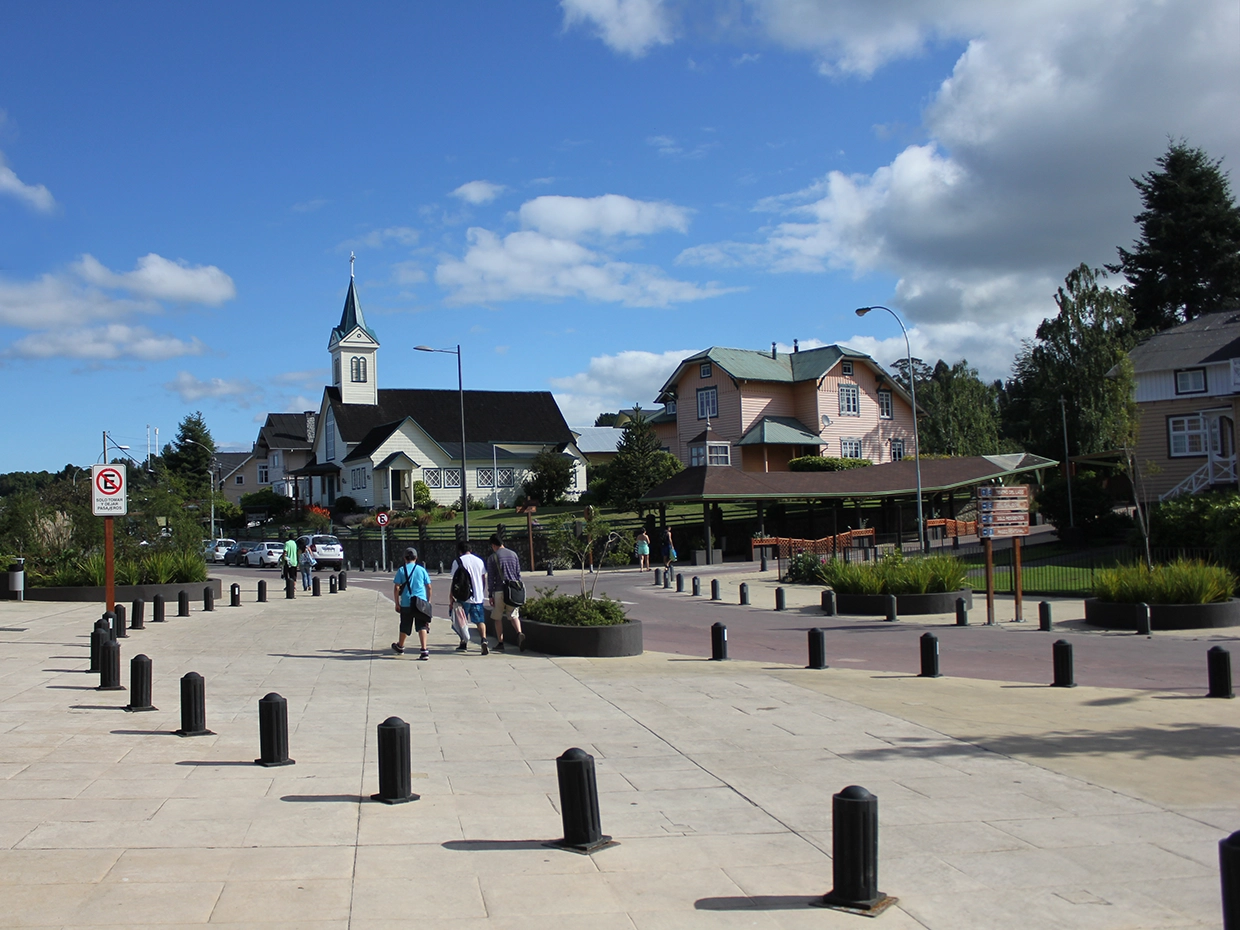Frutillar is a Chilean city with many cultural attractions that you can enjoy within the incomparable beauty of a Patagonian lake.
The city
This charming city owes its name to the Chilean strawberry present in the surroundings and forests.
The area of the city that concentrates most of the tourist attractions is called Frutillar Bajo and is characterized by its charm and tradition.
German Colonial Museum
This museum seeks to represent the process of German colonization in the Llanquihue lake basin through the recreation of houses and equipment belonging to the period. Furthermore, it demonstrates the various activities carried out by German colonists since 1852. In the park you can visit their gardens and learn about the Water Mill, the Campanario, the House and Taller del Herrero and the Casona de Campo. We share the link to the website where you can see more information.
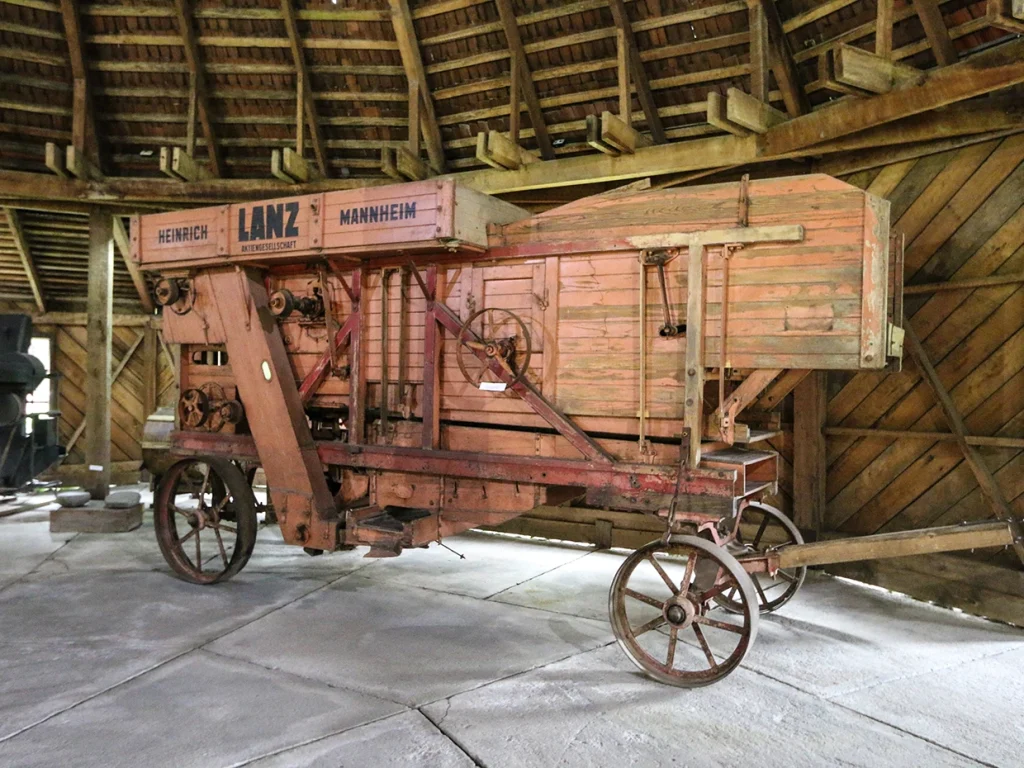
Lake Theater
One of the most outstanding points of Frutillar is the Teatro del Lago, an impressive structure located next to the Llanquihue lake. This theater is internationally recognized for its modern design and incredible natural surroundings. If you visit the city during the winter and winter, you can attend the International Theater Festival.
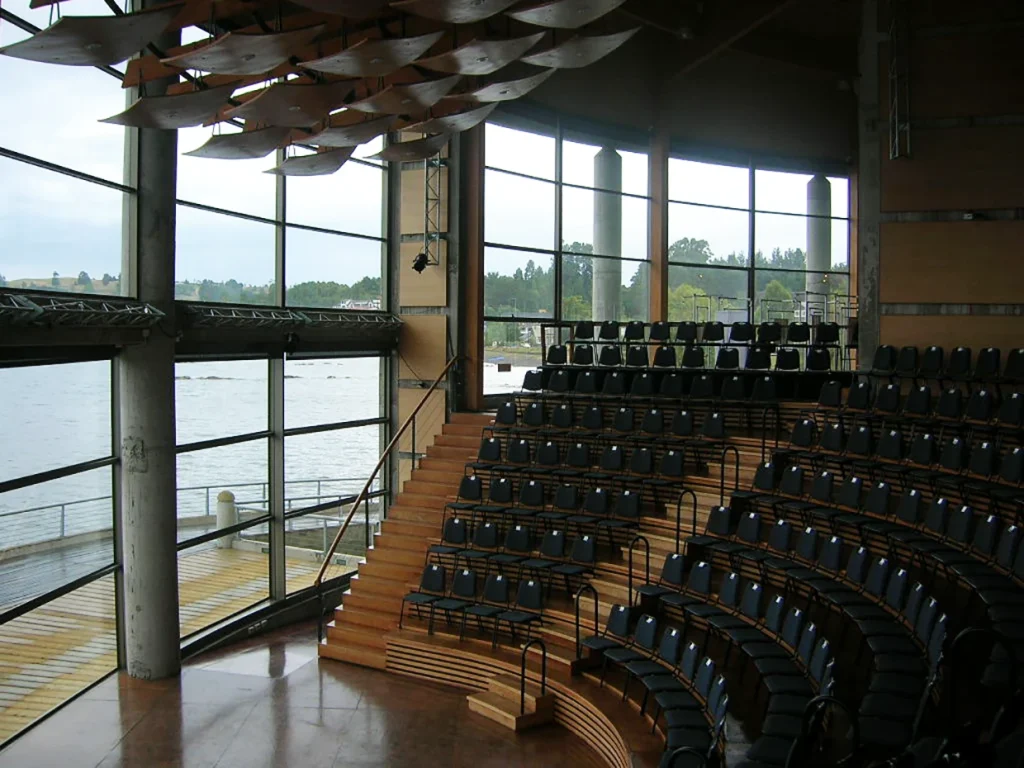
Frutillar pier
A picturesque place to stroll and enjoy views of Lake Llanquihue. It is an elegant wooden structure, relatively modern (it was renovated and reopened in 2013), that stretches a few meters into Lake Llanquihue and ends in a beautiful pergola with a wooden roof, where many people stop to take in the view.
And what a view: from there, you can see the imposing Osorno volcano with its perfectly conical shape, often snow-capped, giving it a postcard-like appearance. If you enjoy photography or simply sitting back to admire landscapes, this place is a visual feast.
At night, it’s also lovely because it features warm lighting that highlights the textures of the wood and gives the area a very romantic and serene atmosphere.
Here’s an extra detail if you like curious facts: Frutillar is divided into two areas, Frutillar Bajo and Frutillar Alto. The pier is located in Frutillar Bajo, the most touristic and picturesque part, full of cafés, museums (like the German Colonial Museum), and quiet beaches.
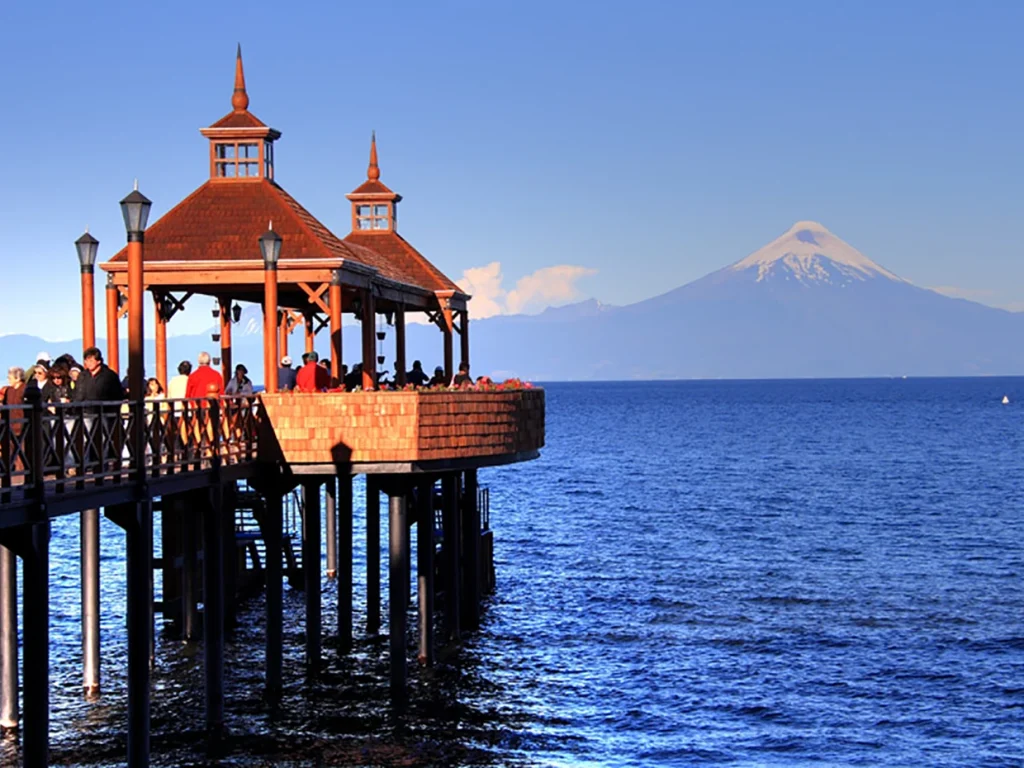
Frutillar Bajo waterfront
Ideal for walking and appreciating the beauty of the lake and the local architecture. Walking along the waterfront is a unique experience of exploring this picturesque city contemplating the lake and the imposing volcanoes in the background.
Yates Club
Perfect for relaxing and enjoying the natural surroundings. This club offers access to the lake for nautical and recreational activities, encouraging the practice of water sports such as sailing and fishing. Furthermore, it provides services such as boat storage, spaces for members, a marina with capacity for boats, and areas for activities related to the nautical world.
German-influenced architecture
The architecture of German origin in Frutillar is characterized by reflecting the influence of German colonization in the area, with a style that combines traditional elements of German architecture from the 19th century adapted to local conditions. An example is Ritcher house, currently the Escuela de las Artes which is characterized by being a construction with large interior spaces ideal for meetings and social activities. It integrates warm materials that fuse with tradition and the local landscape, thus reflecting the typical architecture of German influence in the area.
The Richter house has been the subject of repairs, restorations and recycling that have allowed it to preserve its historical and architectural value, through sustainable interventions that respect its cultural legacy.
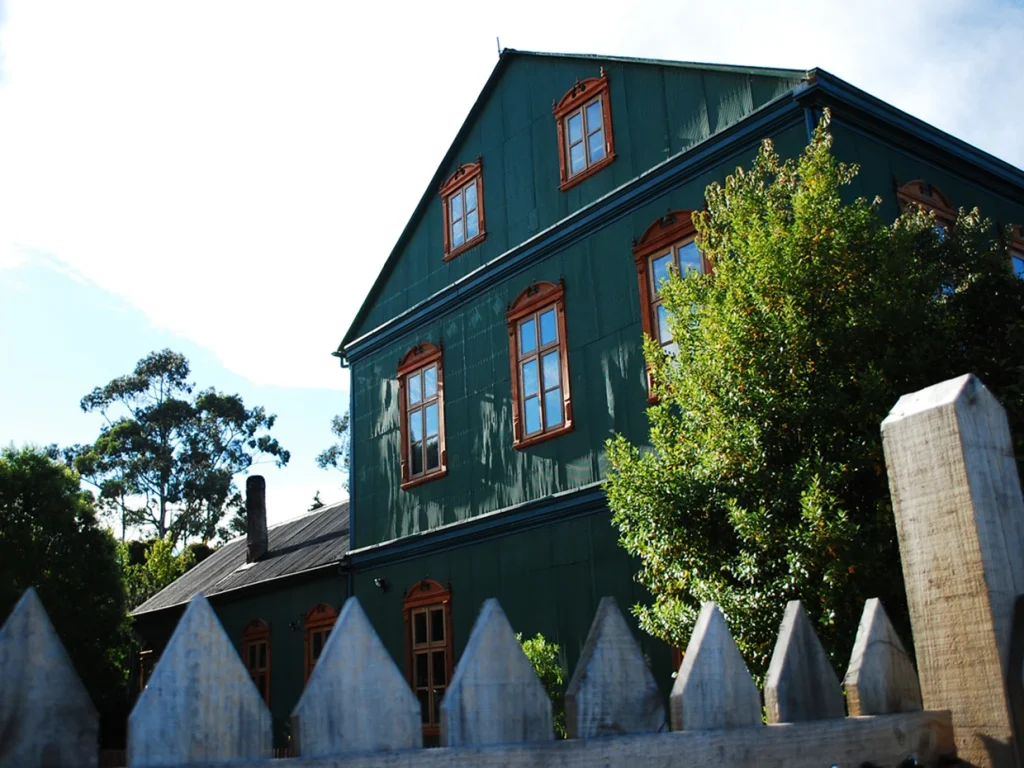
Local cuisine
Fish and seafood
Due to its location on the coast and near the lakes, Puerto Varas is known for its excellent selection of fresh fish and seafood. Highlights include dishes such as salmon, trucha, congrio, shrimp and mejillones, prepared in different ways, such as parrilla, al steam or in ceviches.
Lamb al palo
El lamb al palo is a traditional dish from the Los Lagos region. It consists of a young lamb that slowly flies over a fire of wood. The result is juicy and tender meat, with a smoky and delicious flavor.
German food
The German influence in Puerto Varas is reflected in its gastronomy. You will find typical dishes such as kuchen (fruit pie), manzana strudel, apfelstrudel (manzana pie) and sauerkraut (sauerkraut), among others. Furthermore, you can enjoy the German craft beer produced in the area.
Pastry and restorative
Puerto Varas is famous for its delicious pastries and reposteries. You will find a wide variety of pastries, pies and traditional sweets, such as dulce de leche, alfajores and berliner (sweet rellenos). Don’t miss the opportunity to try the local sweet delicacies. Dairy products The Los Lagos region is known for its production of high-quality milk and dairy products. Enjoy artisan cheeses, yogurts, butter and other fresh and tasty dairy products.
In addition to these highlighted aspects, Puerto Varas also has a varied gastronomic offer that includes international cuisine restaurants, gastronomic fusions and typical Chilean dishes. The city offers a culinary experience that combines traditional with innovation, in a naturally impressive environment.
A place to enjoy nature
Llanquihue Lake
The city is located on the edge of this lake, which is the second largest lake in Chile and is the main attraction of the area. Its blue waters surrounded by volcanoes and mountains offer an impressive landscape. You can enjoy activities such as boat trips, fishing, kayaking or simply relaxing on the beaches.
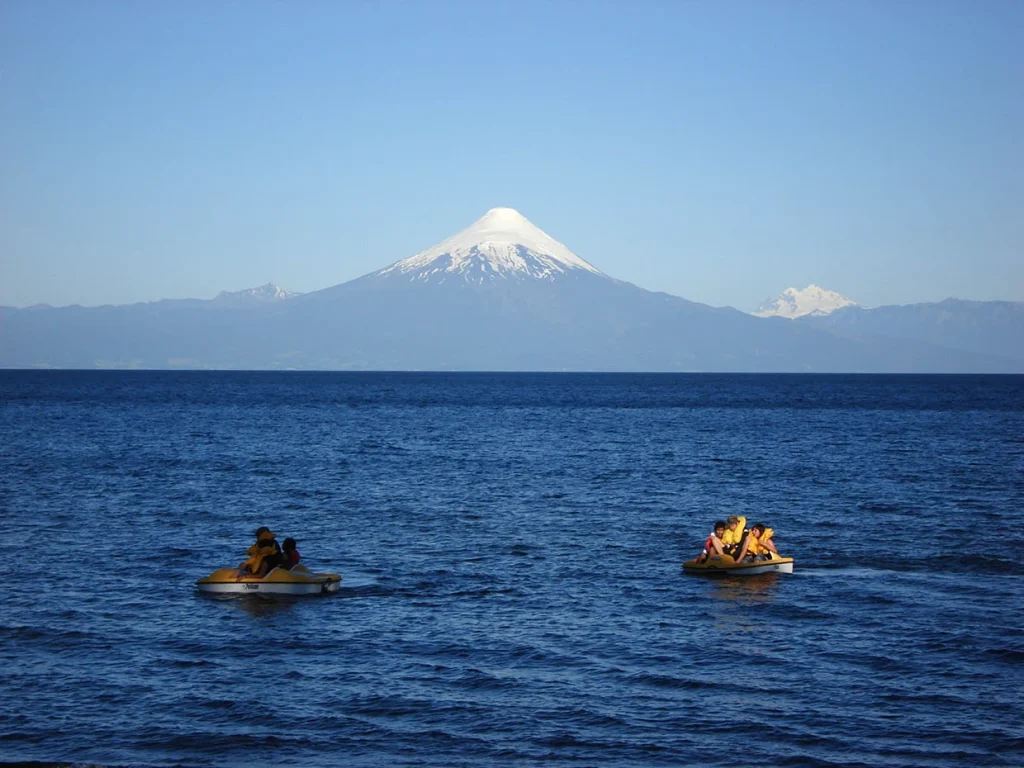
Osorno Volcano
It is one of the main tourist attractions in the area due to its majestic presence and the possibility of carrying out various activities around the city. It has a distinctive conical shape and rises to a height of approximately 2,652 meters above sea level and its top is covered with snow for most of the year.
It is part of the Vicente Pérez Rosales National Park and is one of the most iconic volcanoes in the region.
The Osorno volcano offers various tourist activities throughout the year. In summer, it is possible to go hiking and hikes up to the summit or up to certain intermediate viewpoints to enjoy impressive views of the lake and the surrounding mountains. It is also possible to take excursions in a vehicle to the Volcán Osorno Ski and Mountain Center, located at a height of approximately 1,300 meters, from where you can enjoy a spectacular panoramic view.
In winter, the Osorno volcano becomes a popular destination for ski lovers, offering slopes for skiing and snowboarding, as well as other winter activities. If you want to get to the base of the Osorno volcano, you can take a vehicle from Puerto Varas and take the panoramic route that will allow you to appreciate the landscapes as you approach the volcano. There are also organized tours and excursions available for those who want to explore the area in a guided manner.
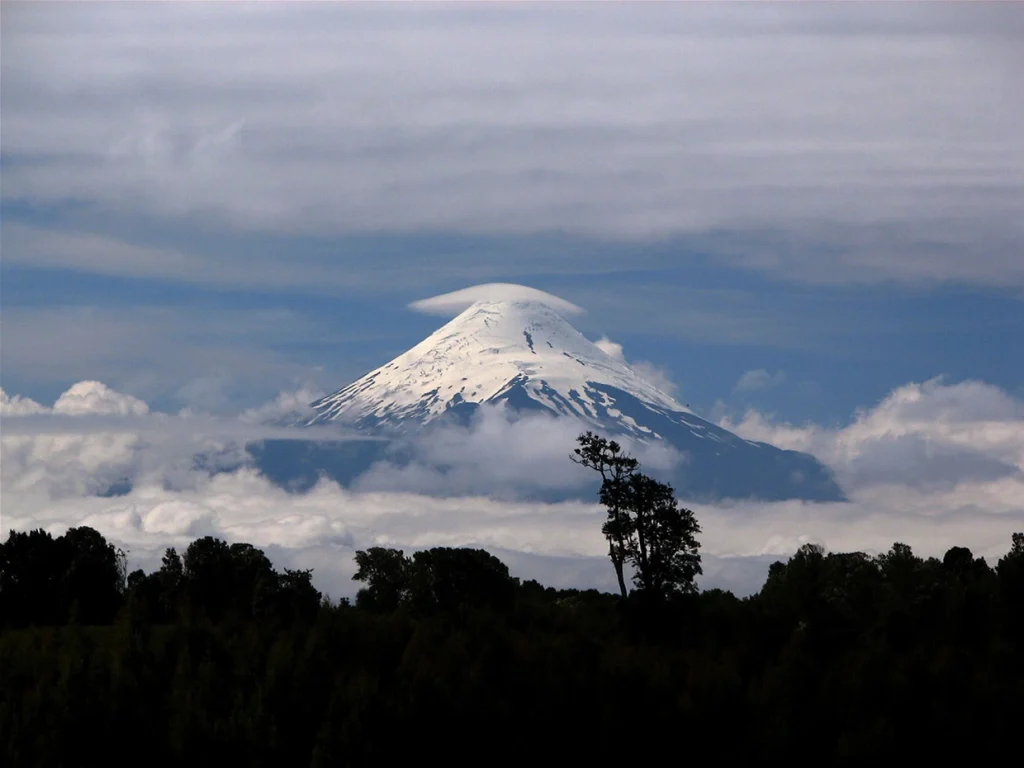
Osorno Volcano
Calbuco Volcano
It is one of the most active and prominent volcanoes in the area and is known for its scenic beauty and historic eruptive activity.
It has a conical shape typical of stratovolcanoes and rises to a height of approximately 2,015 meters above sea level. Its imposing silhouette is visible from several points in the region, especially from the city of Puerto Varas and the Llanquihue lake.
It is located approximately 30 kilometers south-west of the city of Puerto Varas and close to the town of Ensenada and within the Vicente Pérez Rosales National Park The Calbuco volcano has had several historical eruptions.
One of the most significant eruptions occurred in April 2015, when the volcano erupted explosively after several decades of inactivity. This eruption generated a column of clouds and gases that reached impressive heights and affected nearby communities. During this event, authorities evacuated thousands of people to ensure their safety.
There are permitted hiking routes in the Calbuco volcanic area. Adventurous hikers can hike up to the crater, but it is important to take into account the safety regulations and advice provided by local authorities before embarking on any excursion.
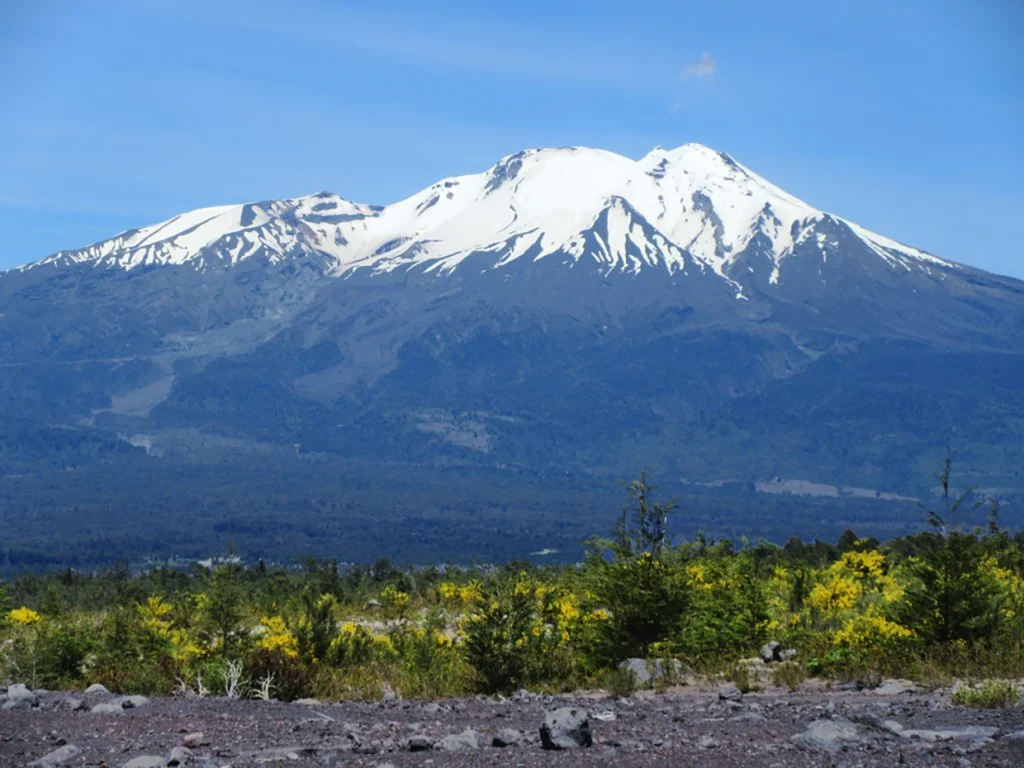
Petrohué Falls
Located in the Vicente Pérez Rosales National Park, the Petrohué Falls are a series of waterfalls and rapids formed by the Petrohué River. The turquoise colored waters contrast with the exuberant vegetation, creating an impressive landscape. You can use trails to admire the waterfalls and enjoy the surrounding nature.
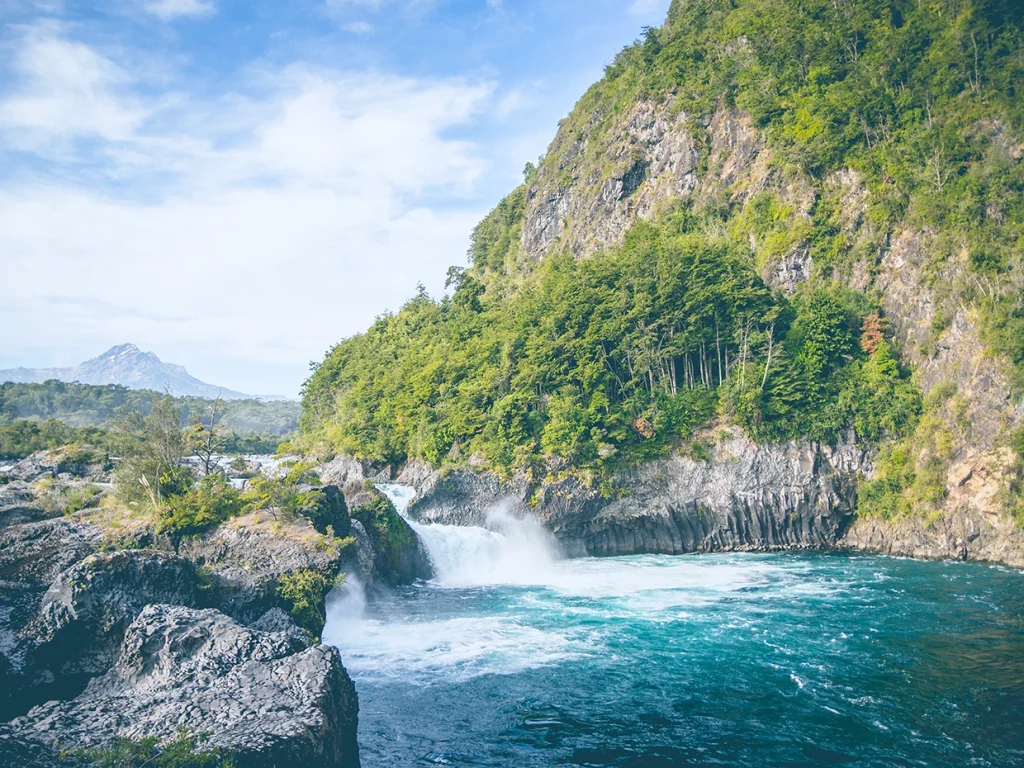
WHY NOT VISIT…?

FAQs

How to get to Frutillar?
FROM PUERTO VARAS. You can take a bus, taxi, or car.
FROM SANTIAGO. Along Pan-American Route 5 Santiago-Puerto Montt.
FROM ARGENTINA. By car on Route 215 through the Cardenal Samoré Pass, passing through Entre Lagos and then taking different routes until you reach Frutillar.
FROM OTHER NEARBY CITIES. There are bus services with daily frequencies from cities such as Santiago, Concepción, Temuco, Valdivia, Puerto Montt and other nearby towns that connect with Frutillar.

These attractions offer a unique combination of history, culture, nature and gastronomy that makes Frutillar a charming destination to explore. Enjoy your visit!


